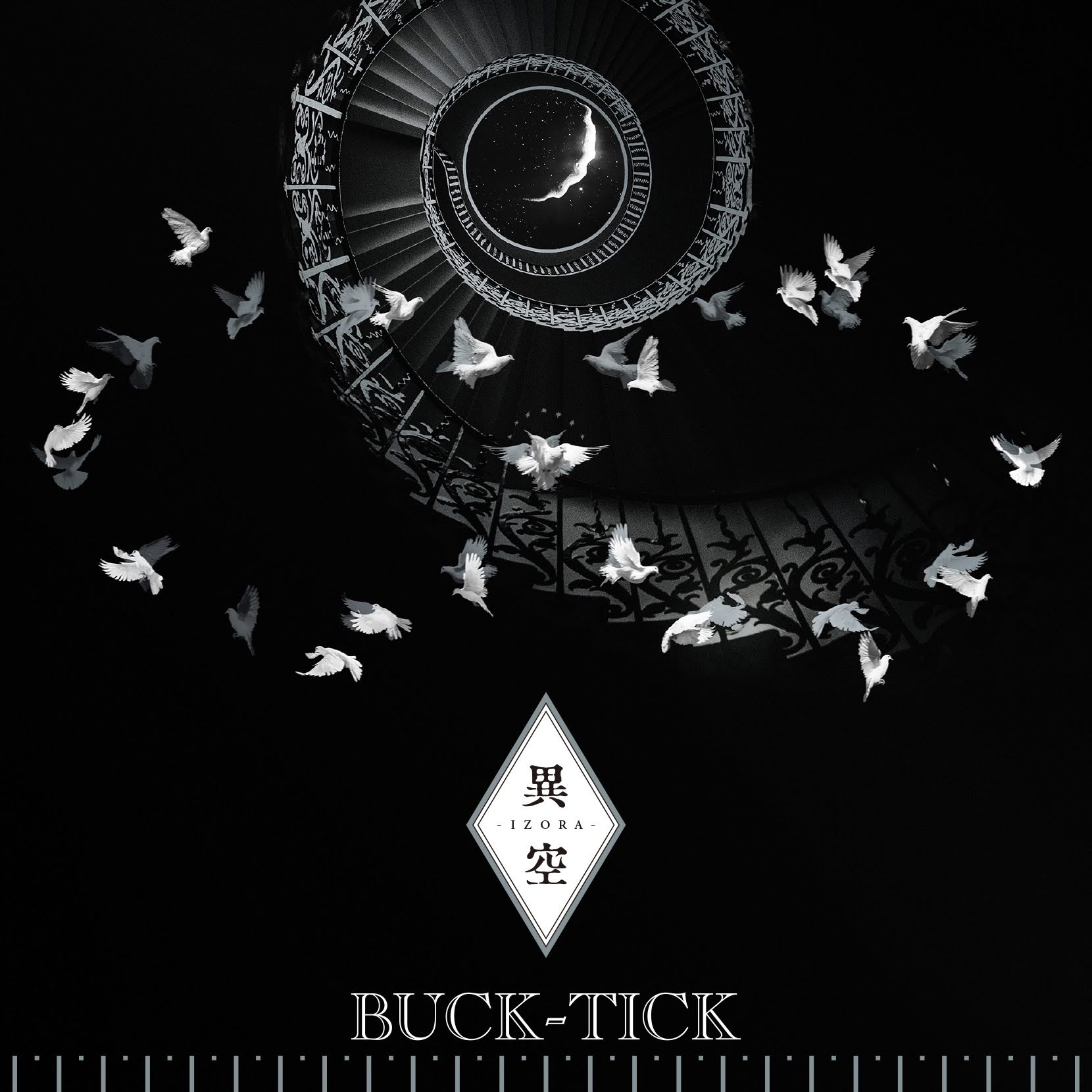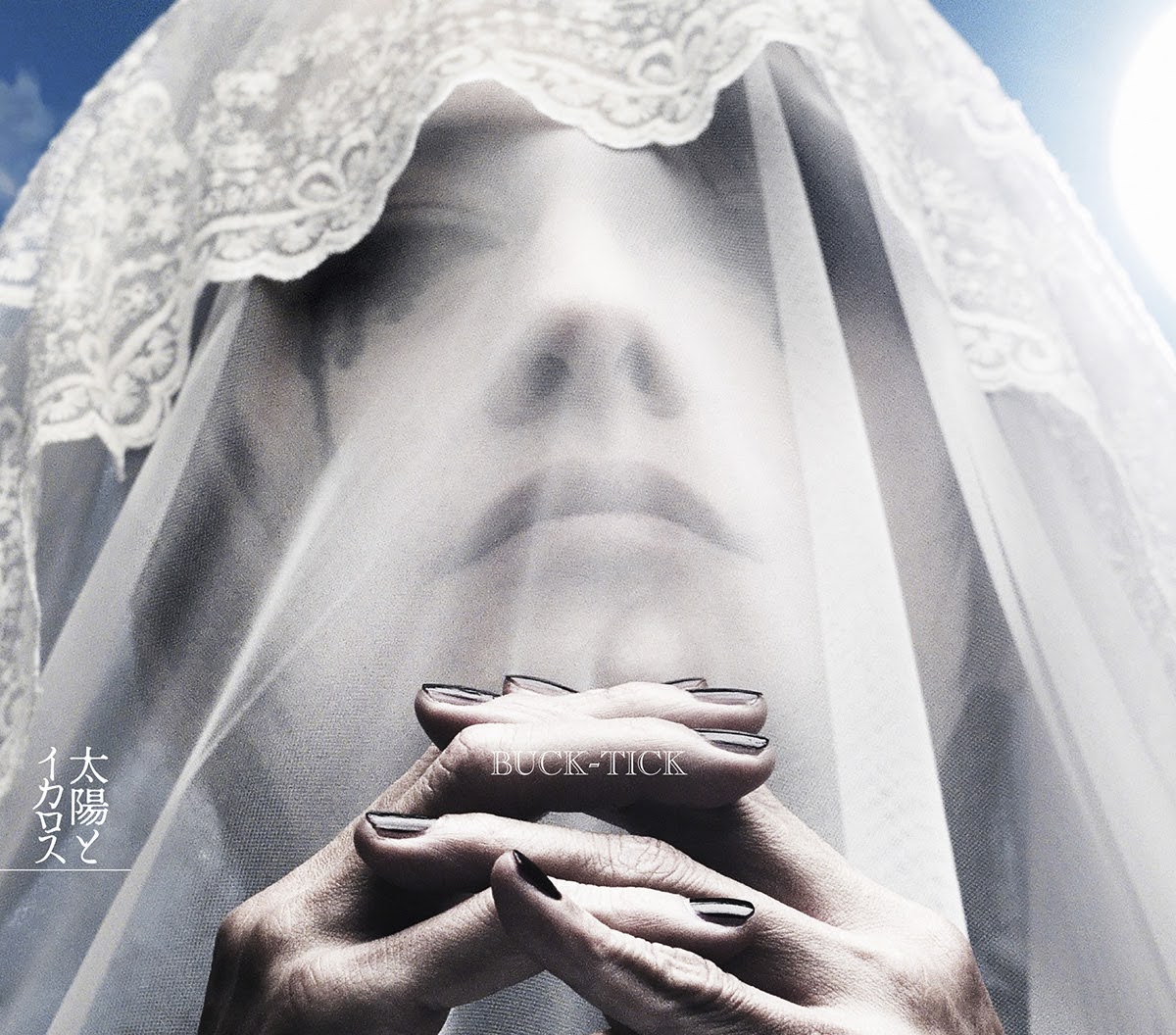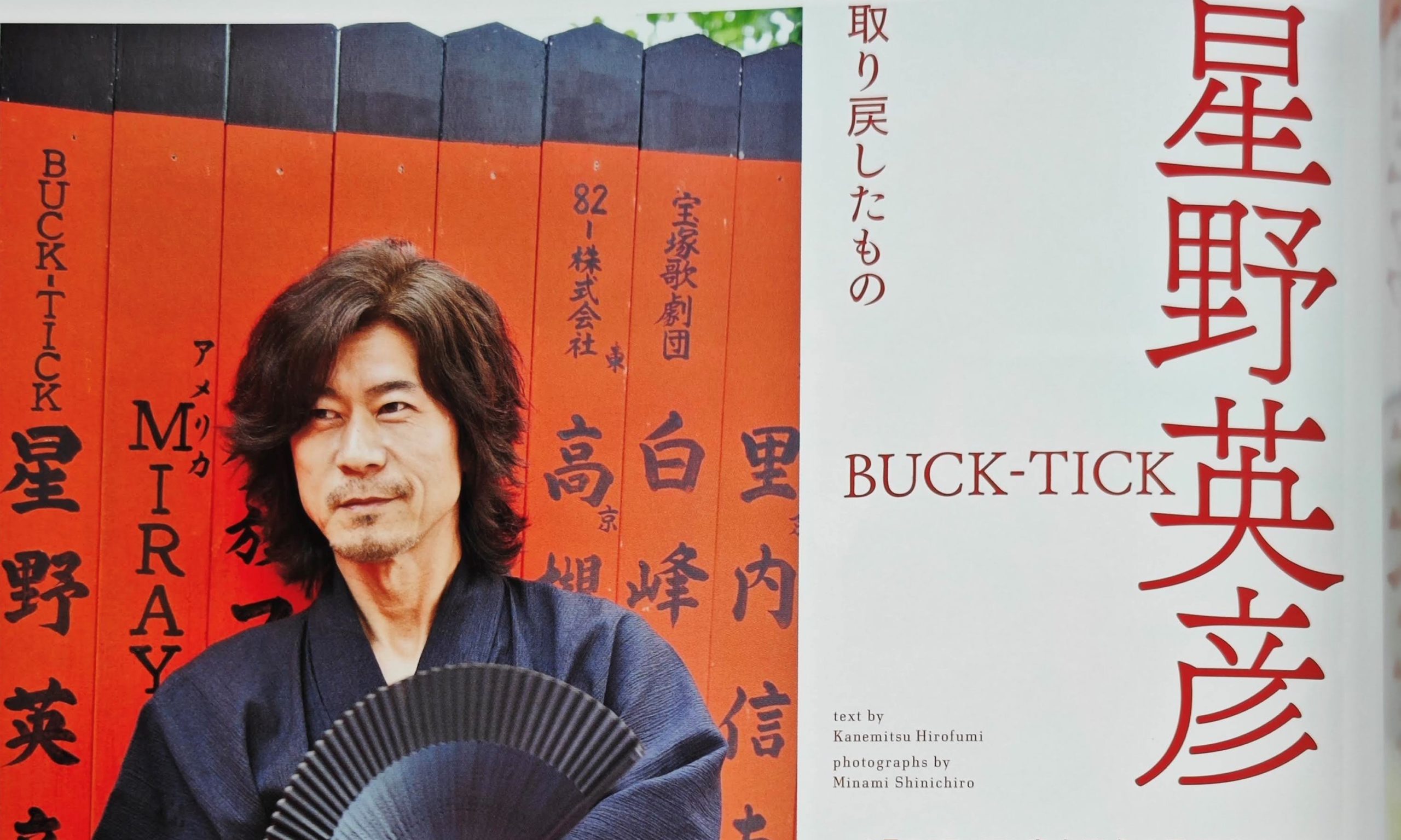
2023.04.12 | Victor Entertainment
異空 -IZORA-
Words by Sakurai Atsushi
Music By Imai Hisashi
Japanese
雨ニ撃タレテ行コウ Boogie
夢なんて追いかけて行こう Woogie
風ニ吹カレテ行コウ Boogie
見知らぬ街から街へBaby!
オンボロ車はガス欠
女神が笑う ケ・セラ・セラ
夜明けが来るまで Boo Who Woo
兵どもが夢の跡
ブギウギ! シュビドゥバ!
あの娘が 待っている
ブギウギ! シュビドゥバ!
ステージへ繰り出そう
ブギウギ! シュビドゥバ! Hey Boogie!
ダクトのJerry & Deadly Tom
蛍光灯に群がるButterfly
逆毛 おっ立てたStray Cat’s
ギラついた眼つきのDiamond Dog’s
横浜たそがれメリーさん
伊勢佐木あたりじゃBLUES
赤い服脱いだあの娘
異人さんに連れられて行った
ブギウギ! シュビドゥバ!
あの娘が 待っている
ブギウギ! シュビドゥバ!
ステージへ繰り出そう
ブギウギ! シュビドゥバ!
おまえと踊っていたい
ブギウギ! シュビドゥバ!
今夜だけ 飛びっきり
ブギウギ! シュビドゥバ! Hey Boogie!
雨ニ撃タレテ行コウ Boogie
夢なんて追いかけて行こう Woogie
風ニ吹カレテ行コウ Boogie
見知らぬ街から街へBaby!
ブギウギ! シュビドゥバ!
あの娘が 待っている
ブギウギ! シュビドゥバ!
ステージへ繰り出そう
ブギウギ! シュビドゥバ!
おまえと踊っていたい
ブギウギ! シュビドゥバ!
今夜だけ 飛びっきり
ブギウギ! シュビドゥバ!
おまえと踊っていたい
ブギウギ! シュビドゥバ!
今夜だけ 飛びっきり
ブギウギ! シュビドゥバ! Hey Boogie!
Romaji
By: Yoshiyuki
Ame ni utarete ikou Boogie
Yume nante oikakete ikou Woogie
Kaze ni fukarete ikou Boogie
Mishiranu machi kara machi e Baby!
Onborosha wa gasu ketsu
Megami ga warau Ke Sera Sera
Yoake ga kuru made Boo Who Woo
Tsuwamono domo ga yume no ato
Bugiwugi! Shubiduba!
Ano ko¹ ga matteiru
Bugiwugi! Shubiduba!
Suteeji e kuri dasou
Bugiwugi! Shubiduba! Hey Boogie!
Dakuto no Jerry & Deadly Tom
Keikoutou ni muragaru Butterfly
Sakage ottateta Stray Cat’s
Gira tsuita metsuki no Diamond Dog’s
Yokohama tasogare merii san
Isezaki atari ja BLUES
Akai fuku nuida ano ko¹
Ijin san ni tsurerarete itta
Bugiwugi! Shubiduba!
Ano ko¹ ga matteiru
Bugiwugi! Shubiduba!
Suteeji e kuri dasou
Bugiwugi! Shubiduba!
Omae to odotte itai
Bugiwugi! Shubiduba!
Konya dake tobikkiri
Bugiwugi! Shubiduba! Hey Boogie!
Ame ni utarete ikou Boogie
Yume nante oikakete ikou Woogie
Kaze ni fukarete ikou Boogie
Mishiranu machi kara machi e Baby!
Bugiwugi! Shubiduba!
Ano ko¹ ga matteiru
Bugiwugi! Shubiduba!
Suteeji e kuri dasou
Bugiwugi! Shubiduba!
Omae to odotte itai
Bugiwugi! Shubiduba!
Konya dake tobikkiri
Bugiwugi! Shubiduba!
Omae to odotte itai
Bugiwugi! Shubiduba!
Konya dake tobikkiri
Bugiwugi! Shubiduba! Hey Boogie!
English
By: Yoshiyuki
Let’s go get caught in the rain Boogie
Let’s go chase our dreams Woogie
Let’s get blown away by the wind Boogie
From one unfamiliar city to another Baby!
The junk-heap of a van is out of gas
The Goddess laughs Que Sera Sera
Until daybreak comes Boo Who Woo
All that remains of warriors’ dreams²
Boogie woogie! Shoo-be-doo-ba!
That girl is waiting
Boogie woogie! Shoo-be-doo-ba!
Let’s paint the stage red³
Boogie woogie! Shoo-be-doo-ba! Hey Boogie!
Jerry in the ducts & Deadly Tom
Butterflies flocking to the fluorescent lights
Stray Cat’s fur puffed up
Diamond Dog’s glaring with piercing eyes
Yokohama’s Mary-san⁴ at twilight
Speak of Isezaki and it’s all about BLUES⁵
That girl who removed her red dress
has been brought away by a foreigner
Boogie woogie! Shoo-be-doo-ba!
That girl is waiting
Boogie woogie! Shoo-be-doo-ba!
Let’s paint the stage red³
Boogie woogie! Shoo-be-doo-ba!
I want to dance with you
Boogie woogie! Shoo-be-doo-ba!
Just tonight is out of this world
Boogie woogie! Shoo-be-doo-ba! Hey Boogie!
Let’s go get caught in the rain Boogie
Let’s go chase our dreams Woogie
Let’s get blown away by the wind Boogie
From one unfamiliar city to another Baby!
Boogie woogie! Shoo-be-doo-ba!
That girl is waiting
Boogie woogie! Shoo-be-doo-ba!
Let’s paint the stage red³
Boogie woogie! Shoo-be-doo-ba!
I want to dance with you
Boogie woogie! Shoo-be-doo-ba!
Just tonight is out of this world
Boogie woogie! Shoo-be-doo-ba!
I want to dance with you
Boogie woogie! Shoo-be-doo-ba!
Just tonight is out of this world
Boogie woogie! Shoo-be-doo-ba! Hey Boogie!
Notes:
¹ While the kanji itself would usually read musume, Sakurai has sung it as ko instead.
² Part of a famous haiku by Bashou Matsuo, the most famous poet of the Edo period in Japan. This haiku comes from a collection of his literary writings known as Oku no Hosho Michi (奥の細道).
The full haiku goes:
夏草や 兵どもが 夢の跡
Natsukusa ya tsuwamono ga yume no ato
Summer grasses、All that remains、Of warriors’ dreams
³ In reference to the saying, “to paint the town red”
⁴ Often known as “Yokohama’s Mary-san (横浜のメリーさん)”, she was a prostitute who was active in Yokohama City until the 1990s. She is well known as an old woman in white paint makeup wearing a white dress in her later years.
⁵ Most likely a reference to a song from1968 called 伊勢佐木町ブルース (Isezakichō Blues). There is a real shopping district called Isezakichō in Yokohama. For some reason, the 1968 song title has also been translated as “Bourbon Street Blues”, and there is an area in Tokyo also named “Bourbon Road” but I’m inclined to believe they’re unrelated.
From Sakurai’s interview in FT107, the song includes a lot of throwbacks to the band’s early days. From the time they pushed their vehicle together when it was low on fuel (オンボロ車はガス欠), and メリーさん and 赤い服 in the second verse which reference his favourite stories.
From Imai and Yokoyamal’s interview in FT107, Imai said that this song started from a single guitar riff. He also specified to YOW-ROW (who worked on it) that he wanted this song to have “a single-note guitar riff like Uta”. Yokoyama added that Imai spent quite a significant amount of time recording the theremin part of this song, bringing up a whole toy box of equipment.





















